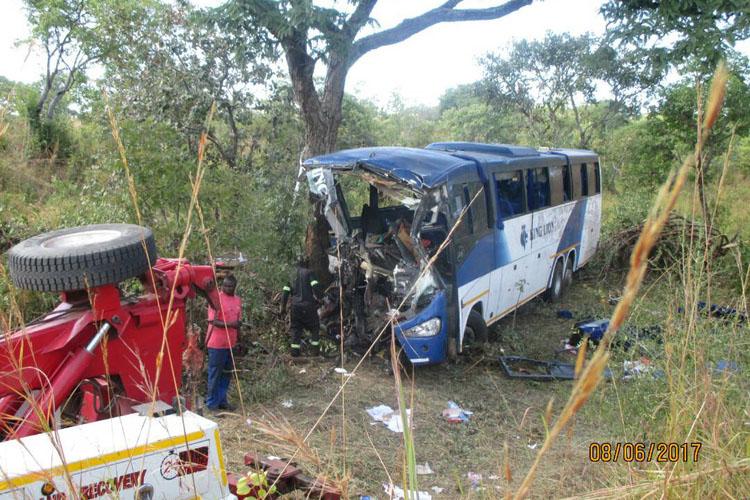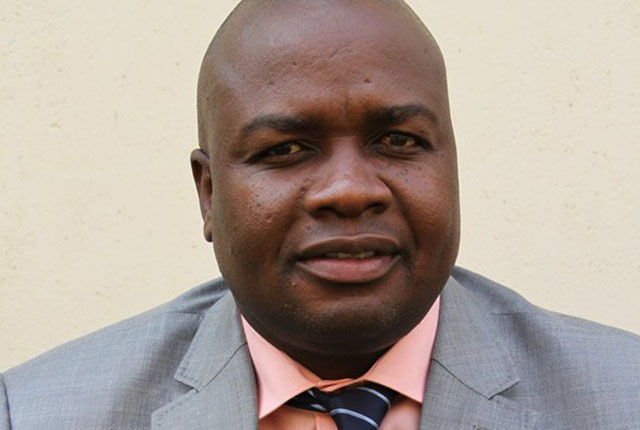Road accidents: Mitigatory measures

Prof Luke Mbune Chakaza Correspondent
Reducing road carnage or trying to bring it to a halt is not all that easy, especially if there is no harmony as to what exactly the main causes are. Causes need to be assessed as human or mechanical. An example is the King Lion bus, which claimed more than 40 lives – may their souls rest in peace and my condolences to the bereaved families.
A lot of theories have been propounded as what caused the accident. Here is a list of possible causes of accidents in general, coupled with possible solutions. In the King Lion bus accident, the driver has to bear the blame, as he was speeding and thereby risking people’s lives.
Since it was also a case of night driving, the possibility of dosing off existed. Falling asleep behind the wheel has led to many grave mishaps on the road. Drivers must rest, as lack of it can cause adverse effects on mental alertness, slow down reflexes and even cause momentary sleepiness behind the wheel. What then follows is disaster.
From experience, the King Lion bus should have left Road Port at 8pm and under normal circumstances the bus was expected to arrive in Chirundu at around midnight meaning it was ahead of time and that’s where over speeding came in. The bus was supposed to arrive in the vicinity of the accident scene at about 11:45pm not 10pm as reported.
The driver’s target was to beat the closing time at the border so that he may proceed with his journey to Lusaka the same night. He wanted to avoid putting up at the border hence over speeding.
The passengers must learn not to snub speed abiding buses and encourage over speeding. They rush to cross the border especially the Chirundu border post, which closes at 10pm, so the idea would be to board the fastest bus and beat the time the border is closed.
The passengers prefer fast moving buses. Bus crews knew this, same applies to management. The last bus that can travel from Road Port to Lusaka normally (abiding to normal speed and police checks) is Mwayera Coaches as they depart at 4pm and they have no need to rush as they can safely arrive at Chirundu Border Post before 10pm.
Passengers are the greatest catalysts as well, their actions and conducts force drivers to perform according to their wills as pleasing them would lure more passengers to their bus on the return journey as their will be scramble for customers in Lusaka and at Road Port on another day of travel. The police can also be apportioned blame as these buses have route authorities and timetables to stick to. It is very easy to see if the bus is over speeding when the police see the departure time and calculate the time taken to cover a particular distance.
If the police roadblocks are there to save lives they should detain the bus when it is ahead of its time and allow it to proceed within its time frame – that way they will force the driver not to over speed as waiting is frustrating especially at the block. We have more than 20 road blocks from Harare to Chirundu and none of the blocks delayed the King Lion bus or stopped it because obviously it was ahead of its prescribed time on its time table attached to its route authority.
If the bus was in its correct time range, then it was not over speeding. Passengers, usually those cross border traders, love speeding buses and they must refrain from that, this contributes immensely to road accidents. Many drivers ignore the speed limits on the roads. Speed kills and travelling above the speed limit is an easy way to cause accidents. The faster you drive, the slower your reaction time will be if you need to prevent an auto accident.

A tow truck recovers the wreckage of a King Lion bus that veered off the road and hit a tree, killing 45 people in Nyamakate, Hurungwe, recently. – Picture: Walter Nyamukondiwa
When it comes to the issue of the issuance of driver’s licences, one of the problems that comes to mind is corruption. The big question is on how some of the current drivers plying our roads and those at whose hands countless souls have been lost or maimed, obtained their driving licenses and how they were issued.
Most services in respect to this aspect are rendered in Zimbabwe out of bribes. Instead of a licence being issued out as a certificate of competency, many drivers are using licences they “bought”.
It is the duty of the responsible arms of government to ensure that only competent drivers are issued with licences. Further, there is a problem that is coming from countries like South Africa, where International Drivers’ Licenses are sold to drivers living abroad which they subsequently convert into genuine driver’s licenses in the home countries they are living.
Road carnage has also come as a result of unroadworthy vehicles being used. Vehicles with serious defects have been passed to ply on the nation’s roads because monies exchanged hands between the vehicle owners and those whose responsibilities were to inspect the vehicles and issue or deny roadworthy certificates.
Thus, reforms must be put in place to make the ‘purchase’ of driver’s licenses and issuance of road worthy certificates to defective vehicles. Officials must always remember that they have sacred responsibilities to ensure safety on our roads.
They must not compromise on those responsibilities under any circumstances, especially in the issuance of drivers’ licenses. Distracted driving is also another cause of carnage. There are things that divert the driver’s attention from the road, usually talking on the phone, eating food et cetera. Tyre blow-outs are another cause of accidents on the roads. Most highways are littered with the scattered remains of a tyre blow-out.
Tyre blow-outs can cause you to lose control of your vehicle, and they are especially dangerous for bigger automobiles like loaded buses. Passenger vehicles must be in good working condition. There should be no compromise on the quality of brakes and tyres. Further, it is imperative to inflate tyres with the right air pressure to avoid tyre bursts on the road.
Deadly curves, which some people call ‘dead man’s curves’, but everyone should be careful when approaching them. Many drivers have lost control of their vehicles along dangerous curves and lost their lives in such accidents. So when approaching these signs, if any, take heed of the posted speed limit and drive cautiously to avoid accidents.
While drivers are required to know the rules of the roadway, wild animals do not take driver’s education. Wild animals will wade out into the road, and it is up to the driver to make sure that he does not get into accident with them, have to take caution and use high beams when travelling in such areas.
Accidents on our roads have also been caused by poor driving skills, drunkenness, overloading, non-existent road markings et cetera. As a result, to curb road carnage, reforms must result in sweeping legislative reforms by Parliament or Ministers in the form of acts or statutory declarations that will:
1. Force every driver in the country to go for an eye test, at least once every five years. Drivers with poor eye sights will be required to go for sight and reading aids and thereafter tested or their licenses must be revoked.
2. Imposition of heavy penalties on drunken drivers, including fines revocation of licenses and imprisonment.
The efficacy of any equipment to be used to test blood alcohol must be without question especially as the courts will be partners in the overall strategy to curb senseless killings on the roads. A court that is specifically meant for road crimes must also be established.
3. Making use of speed cameras to catch and punish speeding drivers. Hefty fines for overspreading always serve as deterrents to drivers. The Government, through all its arms, must put mechanisms to discourage bribe taking by its officers who are trapping speedsters on the road as such behaviour have the effect of undermining the whole exercise of reducing road accidents.
4. Good roads and constant maintenance of roads are crucial elements in any road safety strategy. Our roads are generally not good.
Paradoxically, people drive first world vehicles on third world roads. Our roads have potholes that can even swallow elephants.
No strategy to reduce road carnage will succeed if it is not complemented by good road repairs and maintenance and this is mainly dedicated to local authorities to take responsibilities to the fullest.
Don’t wait for the maintenance of the road by the ministry when you can as well assist where possible as the government is facing serious financial challenge caused by western sanctions.
Small potholes are usually left to become barrel-holes because we do not have a national infrastructure repair and maintenance culture.
5. Adequate and effective signs and road markings are critically essential in any strategy to curb road accidents. Motorists rely on good road signs and markings to make decisions such as whether to overtake or slow down or stop. When there are no road signs and markings, driving always become a risky adventure.
6. Sustained traffic campaigns throughout the year, not only during holidays and festive seasons as is the case here in Zimbabwe, using the many radio stations in traffic bulletins, posters, banners, TVs etc to emphasise on road safety must be embarked upon by arms like the traffic safety council of Zimbabwe.
7. Government should set up a road accident fund into which a percentage of the taxes on fuel and toll roads revenue will be paid.
All road accident victims-dependents of deceased victims and seriously injured passengers may be paid some money from the fund. The payments will go a long way to ameliorate the hardships families face due to motor accidents.









Comments